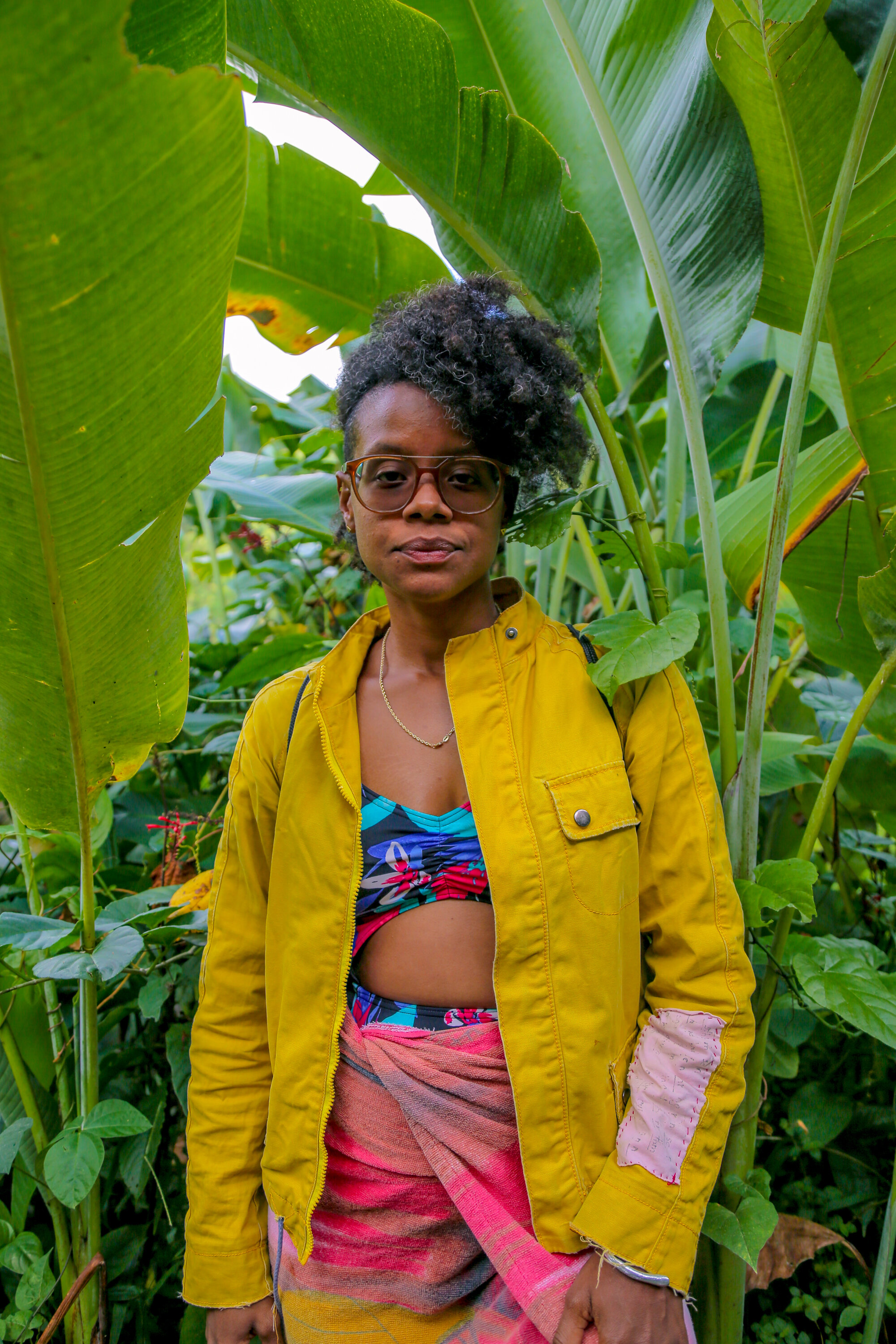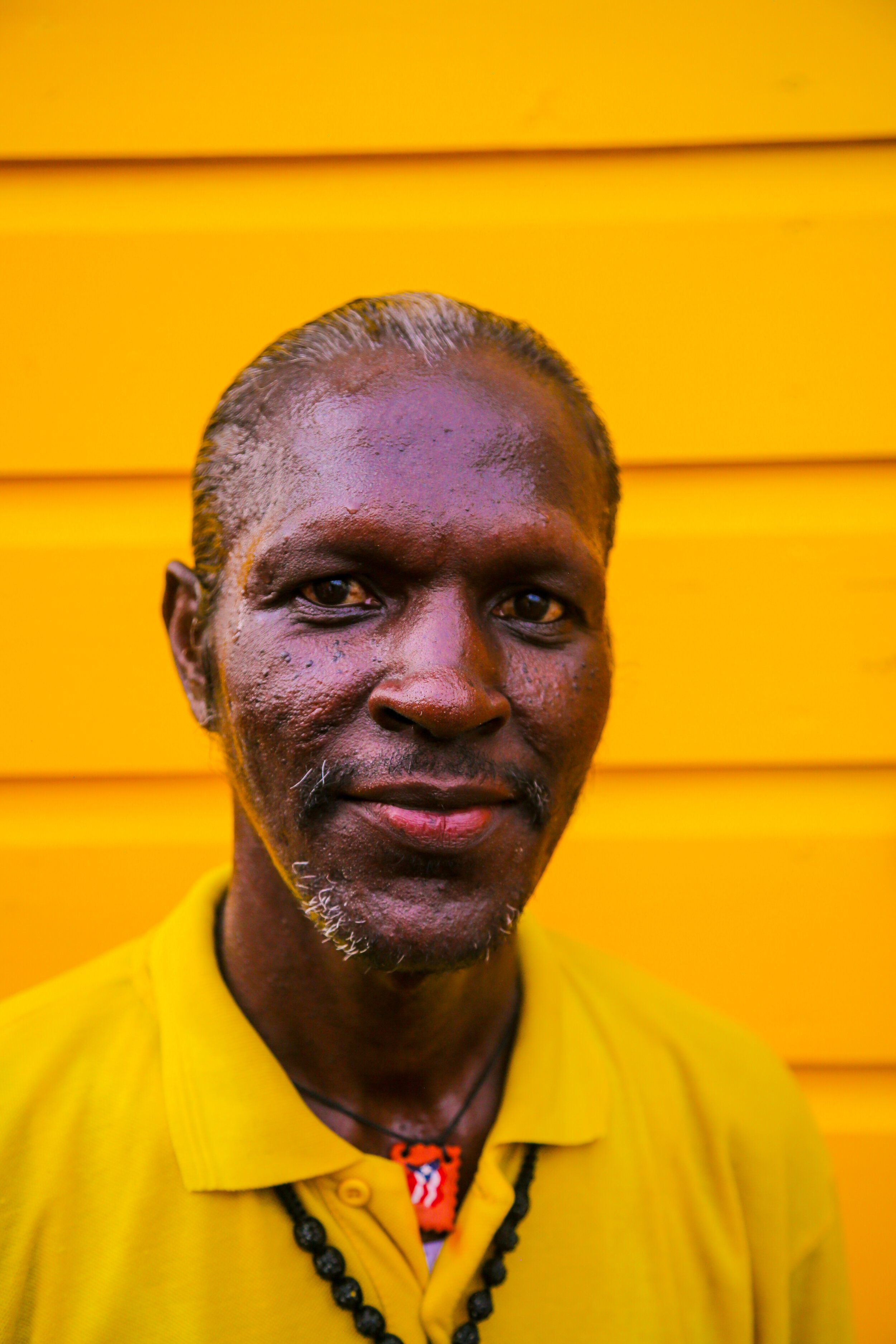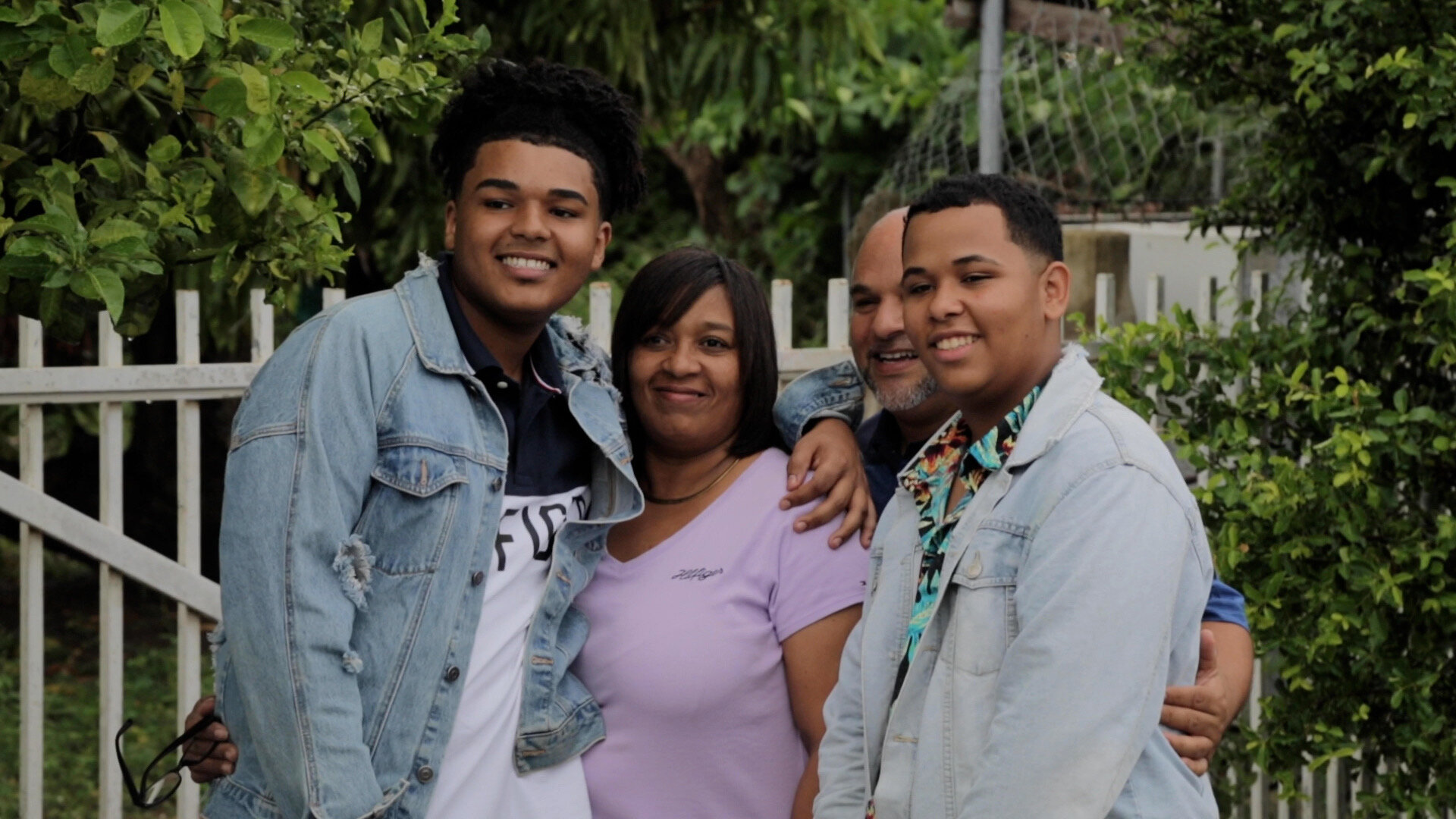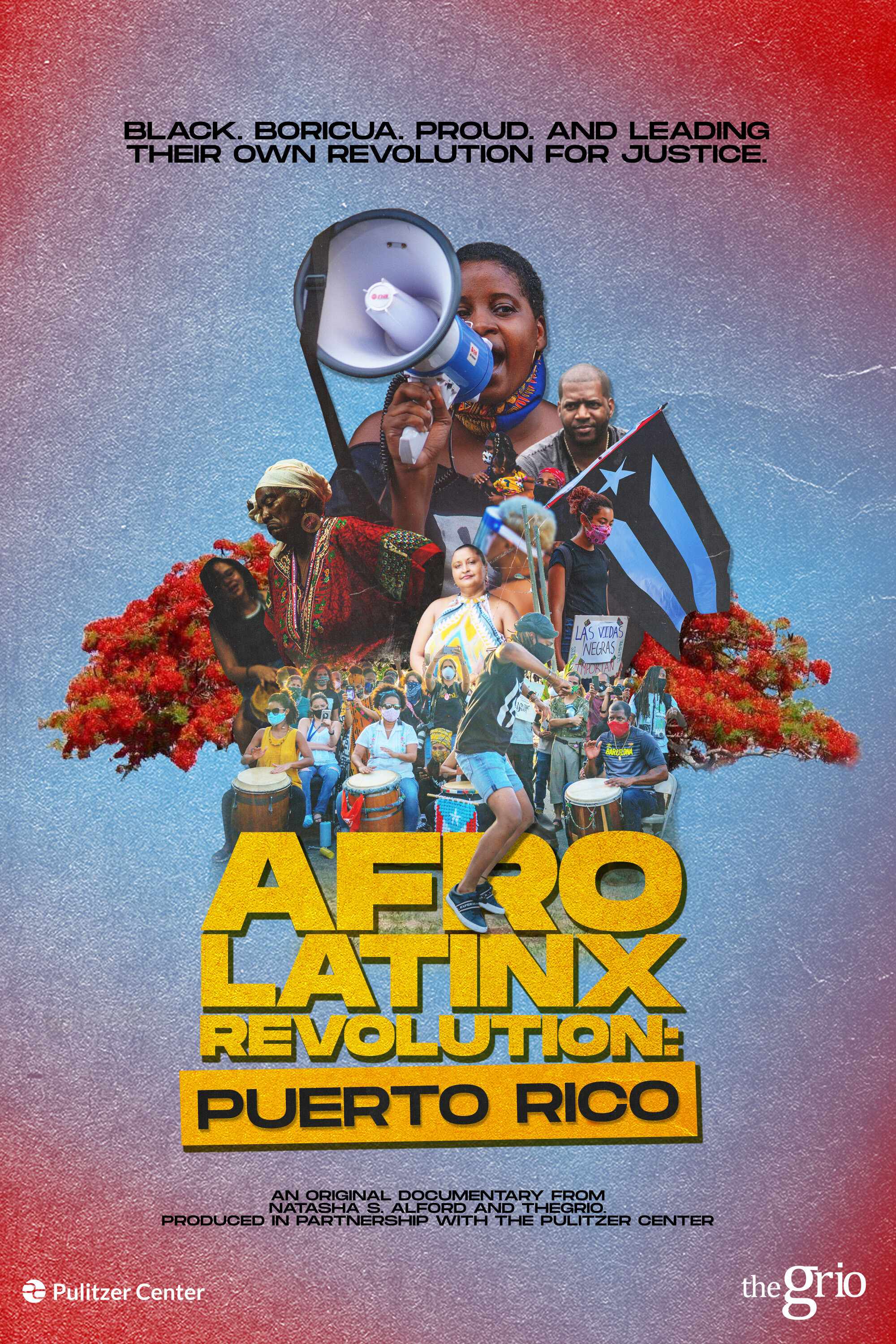‘Afro-Latinx Revolution’: An Interview with Award-Winning Journalist Natasha Alford
As the world zeroed in on Puerto Rico in the summer of 2019, journalist Natasha S. Alford yearned to know how race intersected with the uprising taking place throughout the island. Alford, a Black woman of African-American and Puerto Rican descent, knew it was the right time to pursue her recurrent idea of unpacking race in Latin America, namely her ancestral homeland.
In 2018, her initial pitch to the Pulitzer Center was tabled, receiving feedback and encouragement to follow up once she identified the story’s news angle. With midterm elections and the demands of a 24-hour news cycle, she sat on the idea until reports began pouring in about former Governor Ricardo Rosselló’s leaked text messages with top aides and the protests that followed.
“I pitched it again to Pulitzer and I said, ‘This is about race in the context of the political revolution that's happening now,’” she said during our interview.
After the Syracuse, NY native received a yes and the grant approval, she packed her bags and began a roughly week-long endeavour to capture footage for what would become her documentary, Afro-Latinx Revolution: Puerto Rico, produced by theGrio, where she sits as Vice President of Digital Content, in partnership with the Pulitzer Center. As executive producer and host of Afro-Latinx Revolution, Alford begins with her own story, leading into the ways in which Black Puerto Ricans identify, the existence of African heritage within Boricua culture and structural attempts at erasing it, as well as how Blackness was undeniably present throughout both the uprising of 2019 and in the days following George Floyd’s death.
“I wanted to go and to document what was happening with the ousting of the governor, but to ask about who was leading the revolution when it came to anti-racism work,” says Alford. “I also made a connection to police brutality, because we know that with Black Lives Matter this issue of police brutality was really big in the continental US. So, it left open a question of is police brutality also extending to this commonwealth?”
In the documentary, viewers are introduced to Colectivo Ilé, an anti-racist organization challenging anti-Blackness on the island. Alford shows how they organized a vigil in Loíza in remembrance of Floyd, who died of traumatic strangulation after being restrained by Minneapolis police officer Derek Chauvin, who is now on trial for murder. Their work educating Puerto Ricans about the impact of the census and the island’s deep African roots came after the 2000 census results showed that more than 80% of Puerto Ricans on the island identified as white. The discovery led to island-wide educational workshops on the achievements of notable Afro-Puerto Ricans like singer Ruth Fernández, baseball player Roberto Clemente, and historian Arturo Alfonso Schomburg, to encourage Puerto Ricans of African descent to select “Black” or write-in “Afrodescendiente,” or of African descent, on the census.
Puerto Rican activists aren’t alone in efforts to have Afro-descendants accurately accounted for in the census. The push to have Afro-descendants recognized is evident across Latin America, coinciding with the United Nations’ International Decade for People of African Descent (2015-2024).
Afro-Puerto Ricans may choose to identify themselves in a number of ways. When asked, musician José Luis Elicier-Pizarro identifies as Puerto Rican as opposed to Afro-Puerto Rican or Afro-Latino, but doesn’t negate his Blackness in the slightest. Though he chooses not to use “Afro,” his remarks on the emotional effects of racism reveal his understanding of being racialized as a Black man. “Before it was very evident. Black people were punished, abused,” he says, in reference to enslavement. “Now, the abuse is psychological.”
Sacha Antonetty-Lebrón, founder of Revista étnica, opts for Black woman or Negra, while community organizer Maricruz Rivera-Clemente uses Afro-Boricua. When asked how she identifies, Alford shares, “I'm still most comfortable calling myself a Black woman. When people ask about the origins, I say I'm African-American and Puerto Rican.” Yes, Afro-Latina—a term she discovered in college—applies; however, she’s used different terms interchangeably, but always in an effort to center her Blackness.
“I’m proud to be Black and I advocate for my race,” affirms Marcos A. Rivera Ortiz, Esq. “When I became an attorney, I said that I’m going to defend my people.” Rivera Ortiz, who represents victims of police brutality and discrimination, echoes the sentiments of his fellow Black Puerto Ricans, highlighting the toll racial discrimination takes in all areas of their lives. Though racism is often addressed as a mainland import, those featured in Afro-Latinx Revolution tell a different story on how systematic racism and colonialism manifest throughout the island.
“A lot of the structural, systemic issues that we are constantly referring to play themselves out in the way we think about things like race, class and everything else,” shares the late Miriam Jiménez Román, a pioneering Afro-Puerto Rican scholar and executive director of the Afro-Latin@ Forum. “So those people who were in a position to really talk about any of these issues and, have a voice, a public voice tended to be of the upper class and those tended to be white.”
Alford first reported on the impact of race and identity in Puerto Rico for The New York Times. After penning pieces for The Guardian, Oprah Magazine and theGrio, the New York-based journalist knew she had to turn her reporting into a documentary. It was her best shot at making this information as accessible as possible and she, ultimately, partnered with Amazon to distribute Afro-Latinx Revolution to an even wider audience. Though she’s new to the filmmaking process, Alford was able to coordinate and conduct interviews, as well as capture supplemental footage, in less than a week. (Minus the additional footage of the Floyd protests last year.) But she knows there’s still more to document.




“I hope it's a catalyst for more storytellers to feel inspired to go out and create because we're all part of a collective,” she says. “This really feels like it's a movement; one that is not necessarily brand new, but there's a fresh energy around this.”
As she encourages others to leverage their own storytelling skills and expertise, Alford says she has plans to also continue documenting Black diasporic stories in the States and beyond. “I want to keep this work going,” she adds. “I also want to document the changes that are unfolding; so not just to speak about this in the past tense, but like how are people reacting to learning about their identity or their changing sense of self? Then, how is that manifesting in terms of political action and social social change, and even personal change within families? Yes, the work isn't finished.”
In January, Alford officially signed on with CNN as a political analyst. Coupled with her role at theGrio, she can now be seen alongside anchors such as Don Lemon and Chris Cuomo providing commentary on the news, politics, and movements that matter, as she describes it.
During CNN’s nightly news program with Cuomo, Alford delivered a compelling analysis of Oprah Winfrey’s interview with Meghan Markle and Prince Harry. “Doubting racism is almost an American pastime,” she says in the segment. “It makes people feel better about the sins of this country and allows them to do nothing."
You’ll find clips of her most-recent appearances on her social media accounts. The award-winning journalist gives her following a glimpse into her journey: balancing two dream jobs, ensuring her parents are taken care of, managing lupus and, most recently, the beautiful expansion of her family.
“I see it as a dream come true in terms of I built the life that I wanted for myself, a life that I didn't know was possible, but I did it my way.”
You can view Afro-Latinx Revolution: Puerto Rico on theGrio, Amazon Prime, YouTube, and Local Now.
Janel Martinez is a multimedia journalist & the founder of award-winning blog, Ain't I Latina?, an online destination celebrating Afro-Latinx womanhood. The Bronx, NY native holds a BA in Magazine Journalism & Sociology from Syracuse University. Her writing has appeared in Adweek, BuzzFeed, ESSENCE, Oprah Magazine, & Remezcla, among other publications. She is a frequent public speaker discussing media, culture & identity, as well as diversity at conferences & events for Bloomberg, NBCU, SXSW, Harvard University & more. Her work will be included in the forthcoming anthology, Wild Tongues Can't Be Tamed, which will be published in fall 2021 by Flatiron Books.


